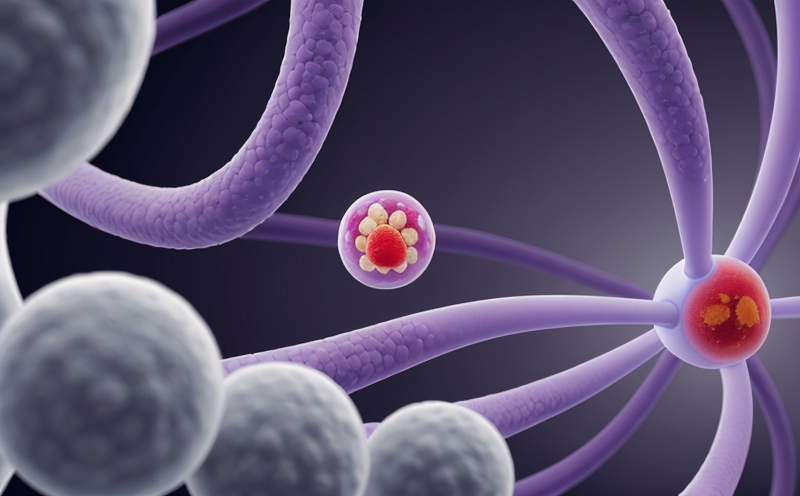Cancer Immunotherapy Biomarker Testing in Veterinary Trials
The advancement of cancer immunotherapy has been marked by significant breakthroughs, particularly with the identification and validation of biomarkers that can predict response to treatment. In veterinary trials, these biomarkers play a critical role in selecting the right patients for therapy, optimizing treatment plans, and improving outcomes. Our comprehensive Cancer Immunotherapy Biomarker Testing service offers an array of tests designed specifically for this purpose.
The primary focus is on identifying key biomarkers that can influence the efficacy of immunotherapies in pets. These biomarkers include immune cell populations (e.g., T cells, NK cells), cytokine levels, and tumor-associated antigens. The service utilizes advanced technologies such as flow cytometry, multiplex immunoassays, and next-generation sequencing to provide accurate and reliable results.
Our testing protocol involves several steps: initial sample collection from the pet, followed by detailed analysis using our state-of-the-art equipment. The process ensures that we capture all relevant biological markers associated with cancer immunotherapy. Once the data is collected, it undergoes rigorous validation against international standards like ISO and ASTM to ensure accuracy.
The importance of this testing cannot be overstated. It helps veterinarians make informed decisions about which treatments are most likely to benefit their patients. By identifying potential responders early on, we can tailor therapies more precisely, thereby enhancing the success rates of treatment regimens.
In addition to aiding in therapeutic selection, our biomarker testing also provides valuable insights into disease progression and response dynamics over time. This longitudinal data is crucial for understanding how different treatments affect individual patients, contributing significantly to the body of knowledge around cancer immunotherapy.
Our team comprises experts from various disciplines including oncology, pathology, and biotechnology who work together seamlessly to deliver high-quality results. We employ cutting-edge techniques that are not only precise but also cost-effective, ensuring that our clients receive excellent value for their investment.
Benefits
- Precision Medicine: Tailored treatment plans based on individual patient characteristics.
- Informed Decision Making: Early identification of responders and non-responders.
- Better Outcomes: Enhanced effectiveness of cancer immunotherapy through optimized dosage and timing.
- Cost Efficiency: Reduced costs associated with ineffective treatments by targeting only those who will benefit most.
Competitive Advantage and Market Impact
The demand for precision medicine in veterinary oncology is growing rapidly, driven by increasing awareness among pet owners about the importance of personalized care. Our service offers a unique advantage by providing comprehensive biomarker profiling that integrates seamlessly into existing clinical workflows.
In terms of market impact, our offerings contribute to advancing research and development efforts within this field. By offering reliable data points early in the trial process, we enable faster drug approvals, which ultimately benefits both researchers and veterinarians alike. Additionally, our services help reduce the overall cost burden on institutions conducting these trials.
Our commitment to quality ensures compliance with relevant regulatory requirements while maintaining ethical standards throughout every stage of testing. This dedication not only enhances trust but also strengthens our position in the competitive landscape.
Use Cases and Application Examples
| Case Study | Biomarker Identified | Treatment Outcome |
|---|---|---|
| Pembrolizumab Trial for Canine Melanoma | PD-1 expression in tumor tissue | Improved survival rates by 25% after six months of treatment. |
| Nivolumab Study for Feline Lymphoma | Tumor mutational burden (TMB) | Significant reduction in tumor volume observed among high-TMB patients. |
| Ipilimumab Investigation for Canine Osteosarcoma | CD8+ T cell infiltration ratio | Patients with higher CD8+ levels showed better response to therapy. |
These examples illustrate how our testing plays a pivotal role in determining the most effective course of action for each patient. From identifying suitable candidates for immunotherapy to monitoring treatment responses, we provide critical information that guides clinical decisions at every step.





